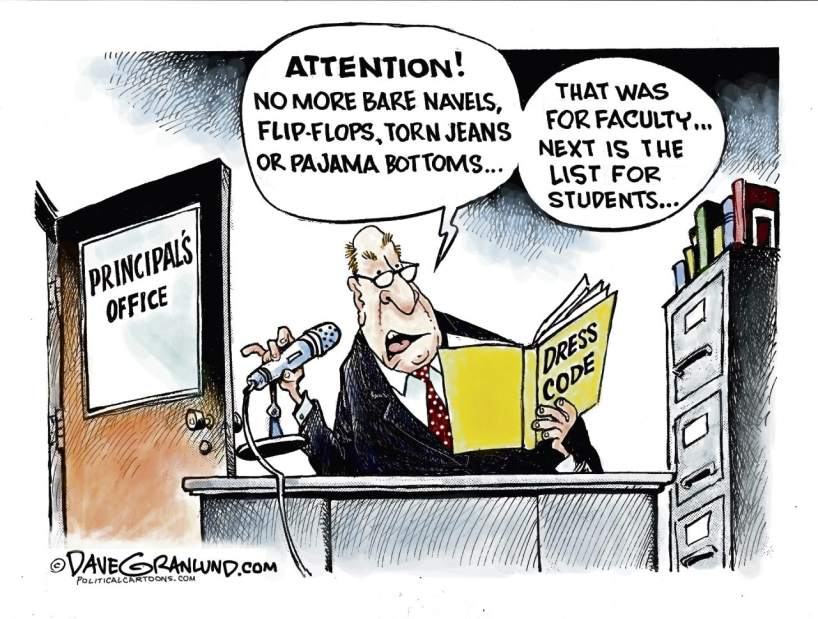Walter Williams: The pathetic state of teachers' education
My recent columns have focused on extremely poor educational outcomes for black students. There's enough blame for all involved to have their fair share. That includes students who are hostile and alien to the educational process and have derelict, uninterested home environments. After all, if there is not someone in the home to ensure that a youngster does his homework, has wholesome meals, gets eight to 10 hours of sleep and behaves in school, educational dollars won't produce much.
There's another educational issue that's neither flattering nor comfortable to confront. That's the low academic quality of so many teachers. It's an issue that must be dealt with if we're to improve the quality of education. Most states require prospective teachers to pass a certification test. How about a sample of some of the test questions?
Here's a question from a recent test given to college students in Michigan planning to become teachers: “Which of the following is largest? a. 1⁄4, b. 3⁄5, c. 1⁄2, d. 9⁄20.”
The Arizona teacher-certification test asks: “Janet can type 250 words in 5 minutes; what is her typing rate per minute? a. 50 wpm, b. 66 wpm, c. 55 wpm, d. 45 wpm.”
The California Basic Educational Skills Test asks the test-taker to find the verb in this sentence: “The interior temperatures of even the coolest stars are measured in millions of degrees. a. Coolest, b. Of even, c. Are measured, d. In millions.” A CBEST math question is: “You purchase a car making a down payment of $3,000 and 6 monthly payments of $225. How much have you paid so far for the car? a. $3225, b. $4350, c. $5375, d. $6550, e. $6398.”
My guess is that these are questions that an eighth- or ninth-grader with a good education ought to be able to answer. Such test questions demonstrate the low bar that states set in order for one to become a certified teacher. Even with such low expectations, college graduates have failed these and similarly constructed teacher-certification tests.
A 2011 investigation by WSB-TV found that more than 700 Georgia teachers had repeatedly failed at least one portion of the certification test they were required to pass before receiving a teaching certificate. Nearly 60 teachers had failed the test more than 10 times. There were 297 teachers on the Atlanta school system's payroll who had failed the state certification test five times or more.
With but a few exceptions, schools of education are the academic slums of colleges. They tend to be home to students who have the lowest academic test scores when they enter college and have the lowest scores when they graduate and choose to take postgraduate admissions tests. Their professors tend to have the lowest level of academic respectability.
American education could benefit from eliminating schools of education. You might ask: Without schools of education, how would teachers be trained? I think that we ought to adopt a practice whereby teachers are hired according to their undergraduate major. I learned this talking to a headmistress of a private school. She said she doesn't hire education majors. She said that if she hires a teacher to teach chemistry, math, English or any other subject, the person must have a bachelor's degree in the discipline. Pedagogical techniques can be learned through short formal training, coaching and experience.
Walter Williams is a professor of economics at George Mason University.

